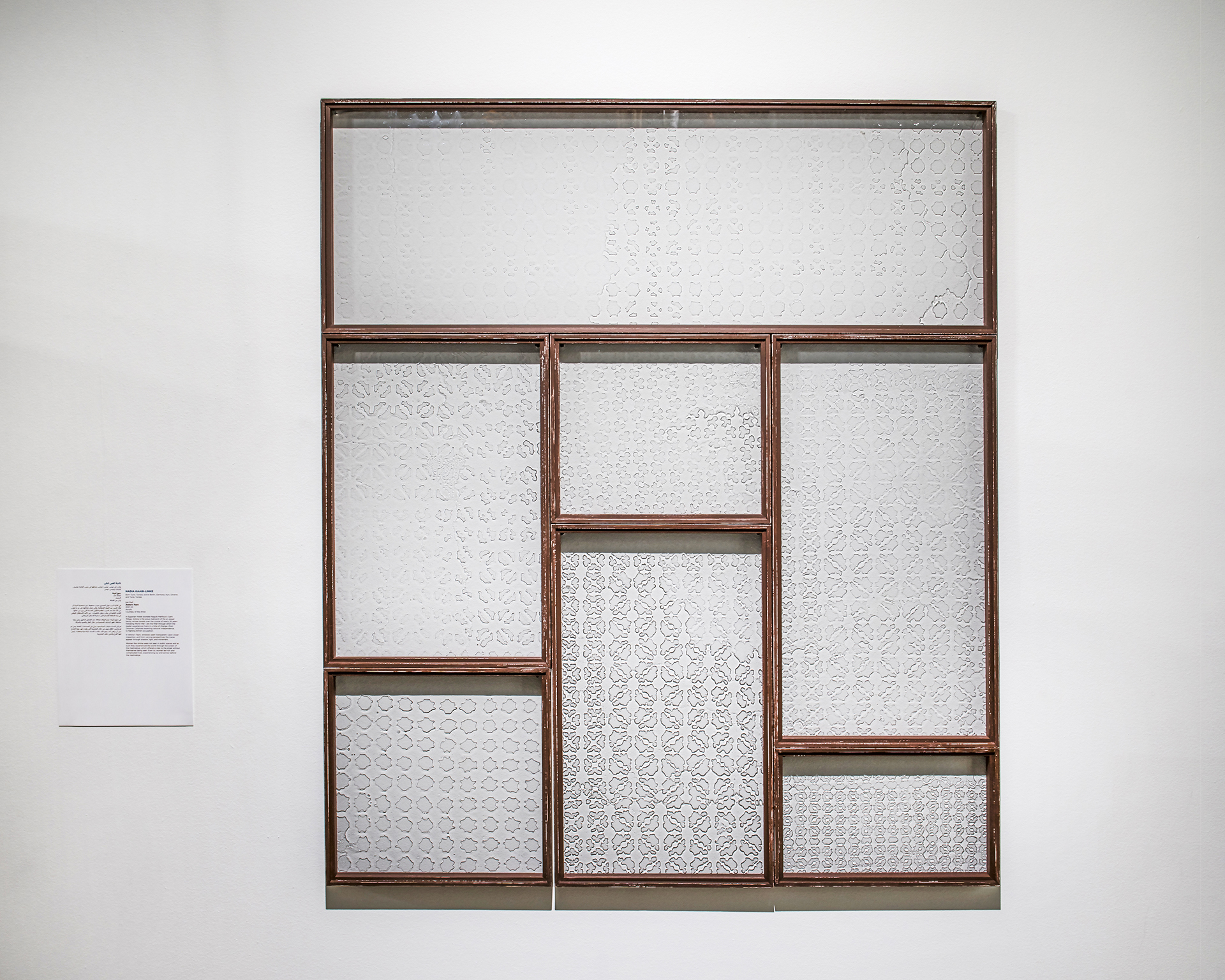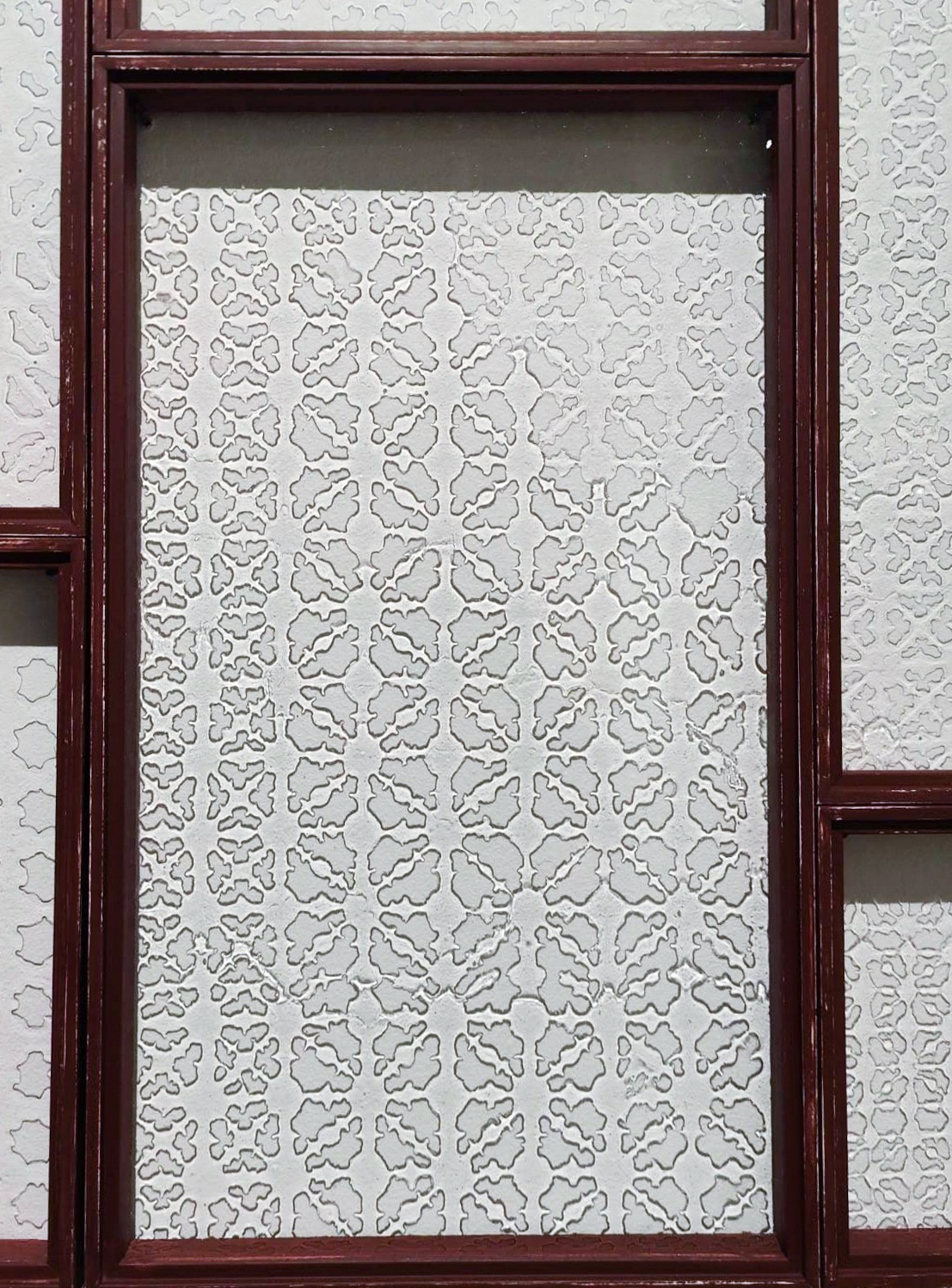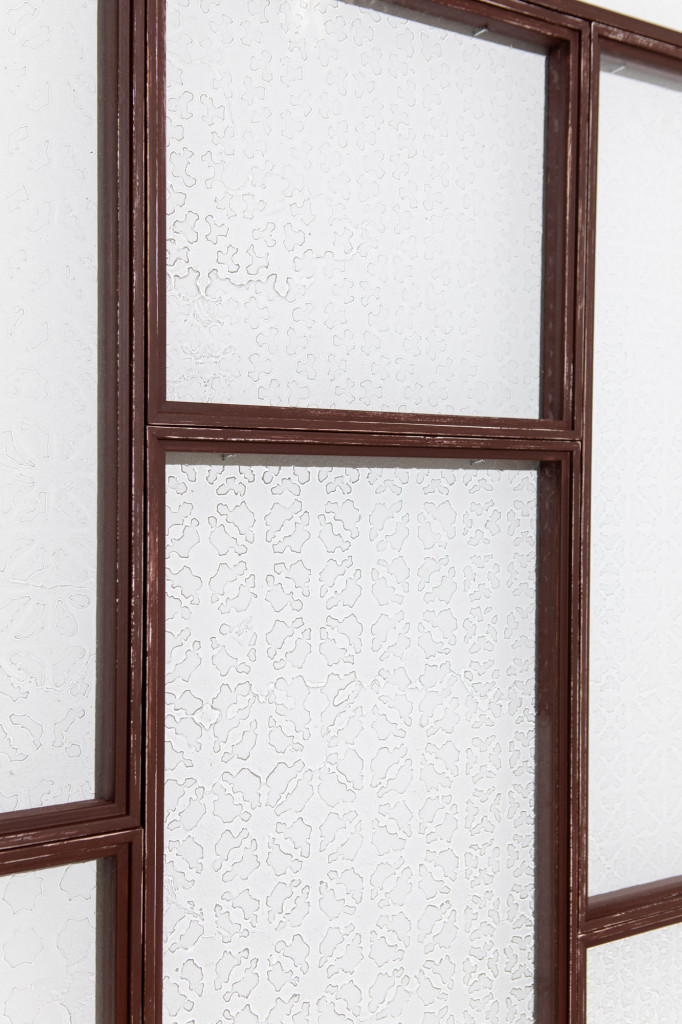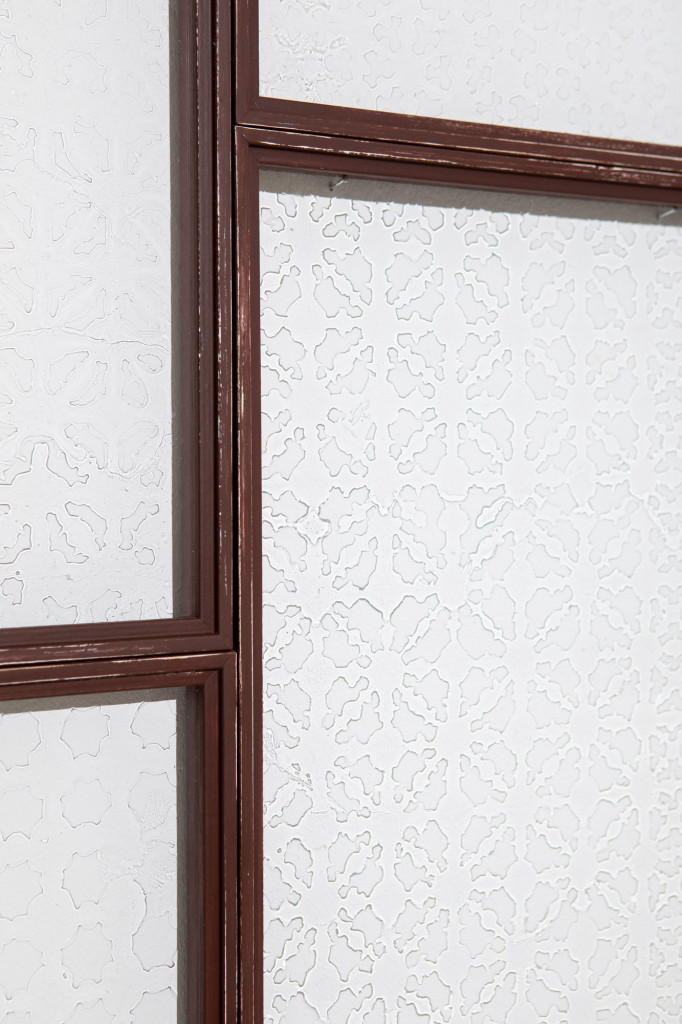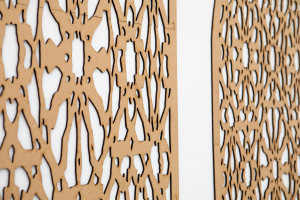In Egyptian Nobel laureate Naguib Mahfouz’s Cairo Trilogy, Amina is the pious matriarch of the Al Jawed family, whose travails over the course of nearly 20 years following World War I are the filter through which the reader experiences Cairo in a time of change—from the Ottoman Empire asserting national independence to fighting British occupation.
In Amina’s Tears, the window seems transparent. Upon closer inspection, and from varying perspectives, the traces of the mashrabiya appear dissolved like water drops through shadow, light, and movement. Women like Amina were not seen in public spaces and, as such, they experienced the world through the screen of the mashrabiya, which offered a view to the street without themselves being seen. Even so, women led rich and complicated lives, experiencing joy and sorrow behind the mashrabiya.

